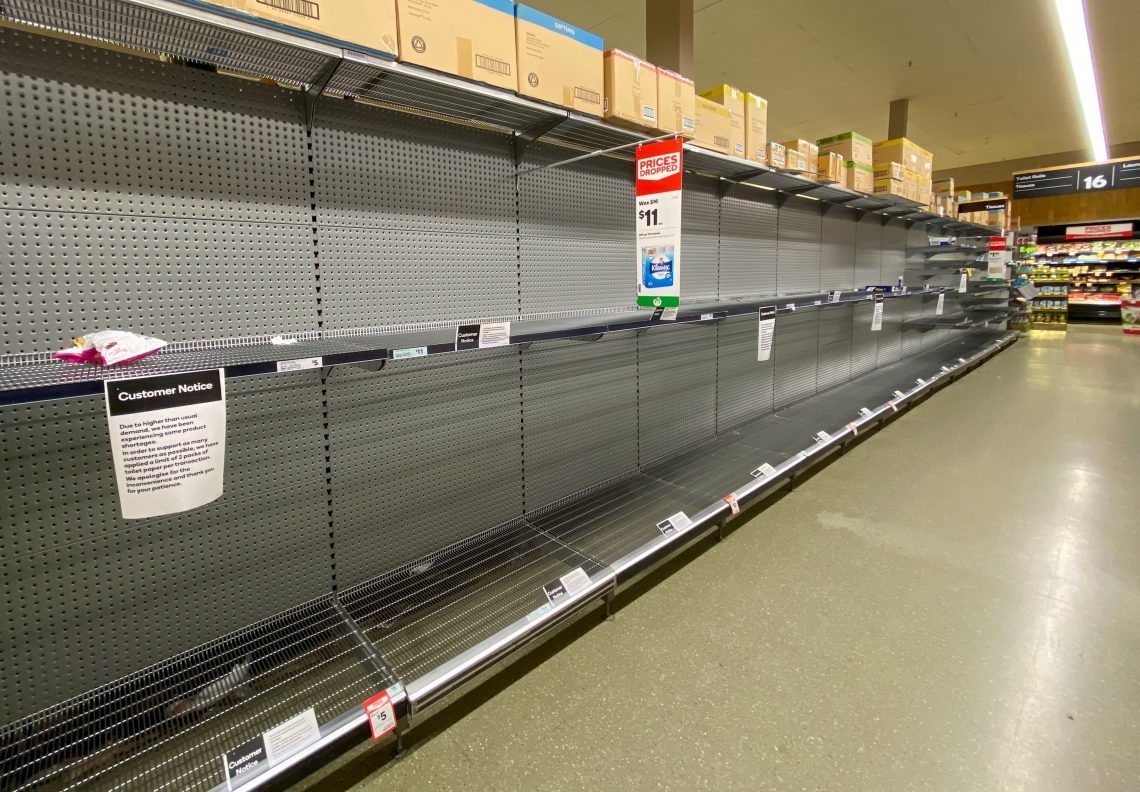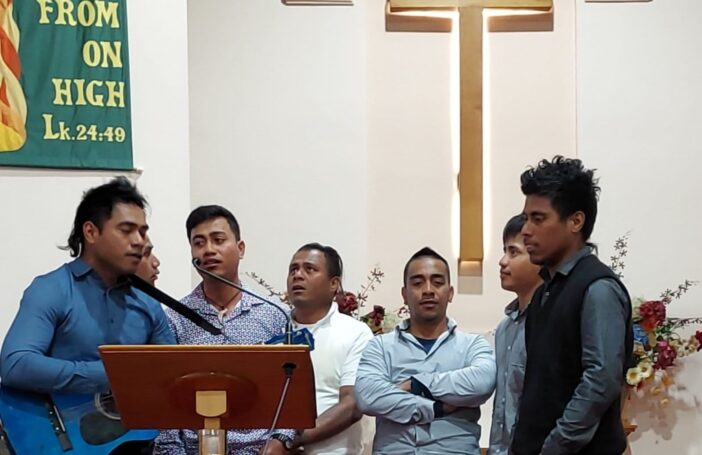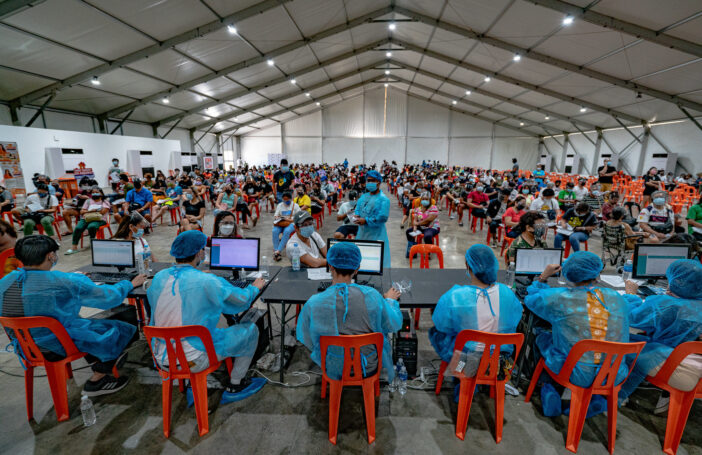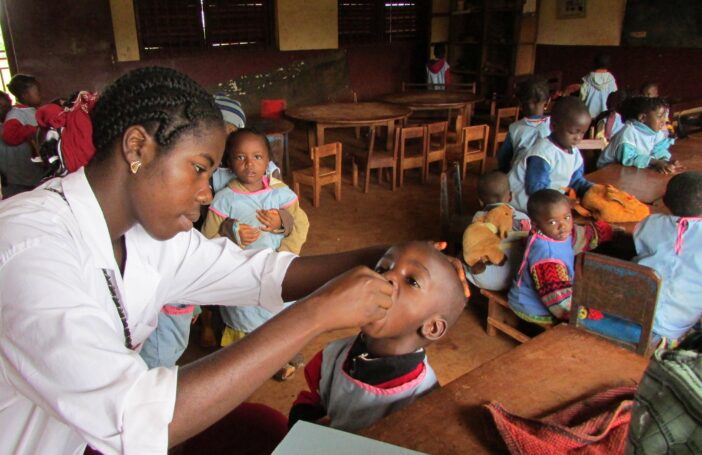While many in Australia have faced significant cost due to the global pandemic, most of us have experienced just a small taste of some of the challenges and hardships that a majority of the rest of the world regularly face. The inability to buy all you want at the shops, often-changing government restrictions and fears of an overrun health system are not uncommon for individuals in low- and middle-income countries. Yet, many of us in high-income countries are experiencing them for the first time.
Although there is significant variation in the lived experience of individuals within countries, the social and economic opportunities of most Australians are significantly different from most of the rest of the world. The Australian way of life is an anomaly. For example, the median Australian adult’s wealth is the highest of any country and nearly 40 times larger than the global median. To acknowledge this fact, there is a growing push to discard the label “the developing world” for that of the “the Majority World”. Here I describe how the new or heightened challenges we are experiencing due to the pandemic have been commonplace for much of the rest of the world. I focus on issues relating to the economy and health.
Large-scale unemployment and high job insecurity increasingly describe Australia’s pandemic-troubled labour force in 2020. But it is even more characteristic of many poor countries. Australia’s unemployment rate for September was 6.9 per cent. There are plenty of countries that had pre-pandemic unemployment rates greater than 20 per cent and two-thirds of the global workforce is in the insecure informal economy.
There were widespread empty shelves at Australian grocery stores. Some excluded from our safety nets have gone hungry and needed to rely on free food. Globally, this is not a new phenomenon. Around 9 per cent of the world’s population was undernourished last year. For some in Australia, the response to this and the deprivation of entertainment options outside the home was to begin making more food from scratch. In these strange times, we voluntarily adopted an unwanted challenge faced by many in the Majority World.
In a similar vein, for the foreseeable future, we won’t be able to engage in overseas travel and for much of the year our ability to go on holiday domestically has been constrained. When in lockdown we cannot go to our favourite restaurants, retail shops or entertainment venues. These are luxuries that many never consume.
In Australia, people are struggling as there is increased uncertainty about the future and we feel a lack of control. A lack of power and control is a defining attribute of the poverty experienced by many in the Majority World. Further, state and federal governments have been changing various rules and regulations with short notice, with some heavy-handed examples. However, citizens in poor nations with little government accountability are often subject to such processes. Consider that even in India, the world’s largest democracy, Prime Minister Modi announced that 86 per cent of India’s currency would no longer be valid less than four hours before it came into effect.
Finally, while we have only feared the possibility of an overrun, underequipped and inaccessible health care system, such constraints are the norm in many low-income countries. These nations also contain many communicable diseases that have been eliminated or are otherwise not present in richer countries.
But there is a further catch. Many of these hardships for Australians were, or will only be, temporary. Among other initiatives, the Australian government prudently responded with massive expenditures to minimise the pandemic’s impact on domestic violence, mental health and job loss.
The weak starting point of those in the Majority World has compounded the severity of the crisis’ impact on the most vulnerable. Many poor countries’ governments lack social safety nets and have been constrained in their ability to respond.
Does this mean we should not lament, speak out against, or address the COVID-caused hardships we face in Australia? No, it does not. However, I have found putting our challenges through this lens helpful. It makes me fret them less and gives me confidence that we will get by. The rest of the world has persisted in the face of worse.
Additionally, by understanding our situation as global outliers, it builds the case for us, as a nation and individuals, to support those who had little and now have even less. Our high levels of personal wealth, well-funded social safety net and the government’s ability to borrow cheaply provide buffers other nations do not have. Our capacity to respond and dampen the situation is its own luxury. We should extend this to others.
Earlier this year, young people in Lae, Papua New Guinea, raised over $60,000 for bushfire-affected communities in Australia. We should be inspired by this example and donate generously to organisations addressing existing and new concerns for the Majority World. Many charities have been struggling to raise revenue this year. Given the even greater need, now is not the time for us to stop giving to such causes.
Our government has already promised to distribute a vaccine to the Pacific and Southeast Asia, temporarily increased the aid budget and suspended PNG’s debt repayments, but more can be done.
In this time of global privation, we have cut our aid to countries outside the Pacific. We can be more generous to these nations. Further, we should provide concessional financing or debt relief to the governments of tourism-dependent Pacific nations needing to support their citizens and we should consider direct mechanisms to assist struggling households in the Pacific. Such actions will allow us to decrease the drastic difference between the lives of Australians and others around the world.
Thanks to my colleague Maholopa Laveil for his comments on a draft, and to my father for providing me with this lens.
This post is part of the #COVID-19 and international development series.





Luke, nice outline of Australia’s advantages and responsibilities in this difficult time period. Here in the United States we struggle with a president who has lied, given up governing while people die and is a fascist wannabe. It is disheartening to say the least. Jan 20th can’t come fast enough. Uncle Steve.
Luke, your calm assessment of Australia since Covid began simply reveals that we are indeed the lucky country. Our health system has been magnificent in its contribution to controlling the virus. Government leaders by and large have acted according to the wishes of the people. However, many state governments have not respected that Australia is a federation. (I have just read the latest biography of Alfred Deakin. I think he would be appalled at some comments by some state Premiers.)
The most worrying aspect of your commentary is that Australia is annually slip sliding towards greater income inequality. A wealth tax, especially on land is one of reversing this trend but political parties are not brave enough to take such a step.
Thank you for this thoughtful and thought-provoking blog post. It has sensitively and clearly raised some rather uncomfortable but useful insights.
Amanda
Great post Luke, I think the pandemic has also provided a sharp lens on persistent gender inequalities in Australia, particularly in relation to care, job insecurity and labour market participation — again issues that women in developing countries are subjected to but at a more extreme scale.
One of the great disappointments for me personally of the domestic pandemic response in Australia has been that we have not taken the opportunity for transformational changes in the economy that could improve some of these situations while providing stimulus (for example, reforming the messy childcare subsidy system and providing some level of free childcare nationally, or deeply examining the aged care system, or looking at longer-term and broader changes to work practices in light of the WFH options ‘tested’ during the crisis).
I really hope we can transform our approach to the region and development assistance as well, and issues such as climate change which are impacting us all. Surely the pandemic goes to show that we are all vulnerable to ‘global public goods’ issues, albeit to varying degrees, and it is in our best interests to act globally on such issues. However I’m not so sure as there seems to be an unnerving rush to return to business as usual on so many fronts.